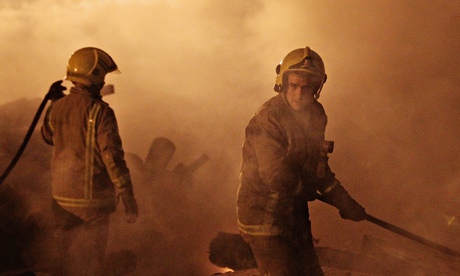
An ambitious project in Glasgow is giving teams of software developers just 48 hours to create new technologies to improve life in the city.
The Future Hacks initiative brings programmers together to work on some of the most pressing problems of urban life in a weekend-long frenzy of research, design and coding. Funded by the UK government's Technology Strategy Board, the programme aims to demonstrate how technology can make cities safer, healthier and more environmentally sustainable.
Participants work in teams to develop systems, devices and applications. At the end of the weekend, a panel of judges reviews each team's efforts, with the best project earning its creators a £20,000 prize.
The first of Glasgow's "hackathon" events focused on ideas to improve public safety in the city. The winning entry was a system designed to enable the public to provide much more detailed information for the emergency services using smartphones.
"At the moment, if someone calls 999 their location can be determined using the nearest mobile phone masts," said Joshua McGhee, a computing science student who worked on the winning design. "But that doesn't give very detailed information. Instead we're providing geotagged data which lets services see exactly where someone is, even if the user isn't sure where they are themselves.
"If someone takes a picture of a plume of smoke from a nearby street, that would be tagged with their precise location and sent to the fire service's command centre. They can then determine where their nearest fire engine is and send it to assess the situation."
The event, held at a visual arts studio in Glasgow's fashionable Merchant City district, saw participants working tirelessly over the weekend amid stacks of empty pizza boxes and takeaway coffee cups. With few opportunities for sleep, some coders ended up slumped over their laptops.
While the format might appear a little chaotic, the organiser of Future Hacks, Murray Buchanan, said hackathons were a way of cutting through the red tape that can strangle innovation in public-sector projects. He said: "We aren't giving people set briefs to work to. Teams can come up with their own ideas and work on them, and no one's going to tell them: 'No, you can't do that.'
"We've got a lot of young people at this event, and young people can often be excluded from policy decisions at a high level. That's a shame, because they're working at the coalface in cutting-edge technologies and they bring fresh thinking to old problems."
Other ideas teams worked on included a 4G camera worn by emergency service staff that could relay live pictures back to service co-ordinators, and a system for ranking public safety concerns in order of the number of people reporting them, then keeping residents informed as they are addressed.
"We've brought together a diverse group of people," Buchanan said. "Obviously we have people with software expertise, but we also have folks from a range of backgrounds that complement that: geography, science, sociology, philosophy – the more diverse the better.
"All of the projects here are built on open data – information from lots of different agencies that's been made available so people can do useful things with it. But that data is rooted in the real stories of people who live and work in the city. It's a very rich source that tells us what the needs of the city might be."
Further Future Hacks events on the themes of energy, health and transport are scheduled up until May

